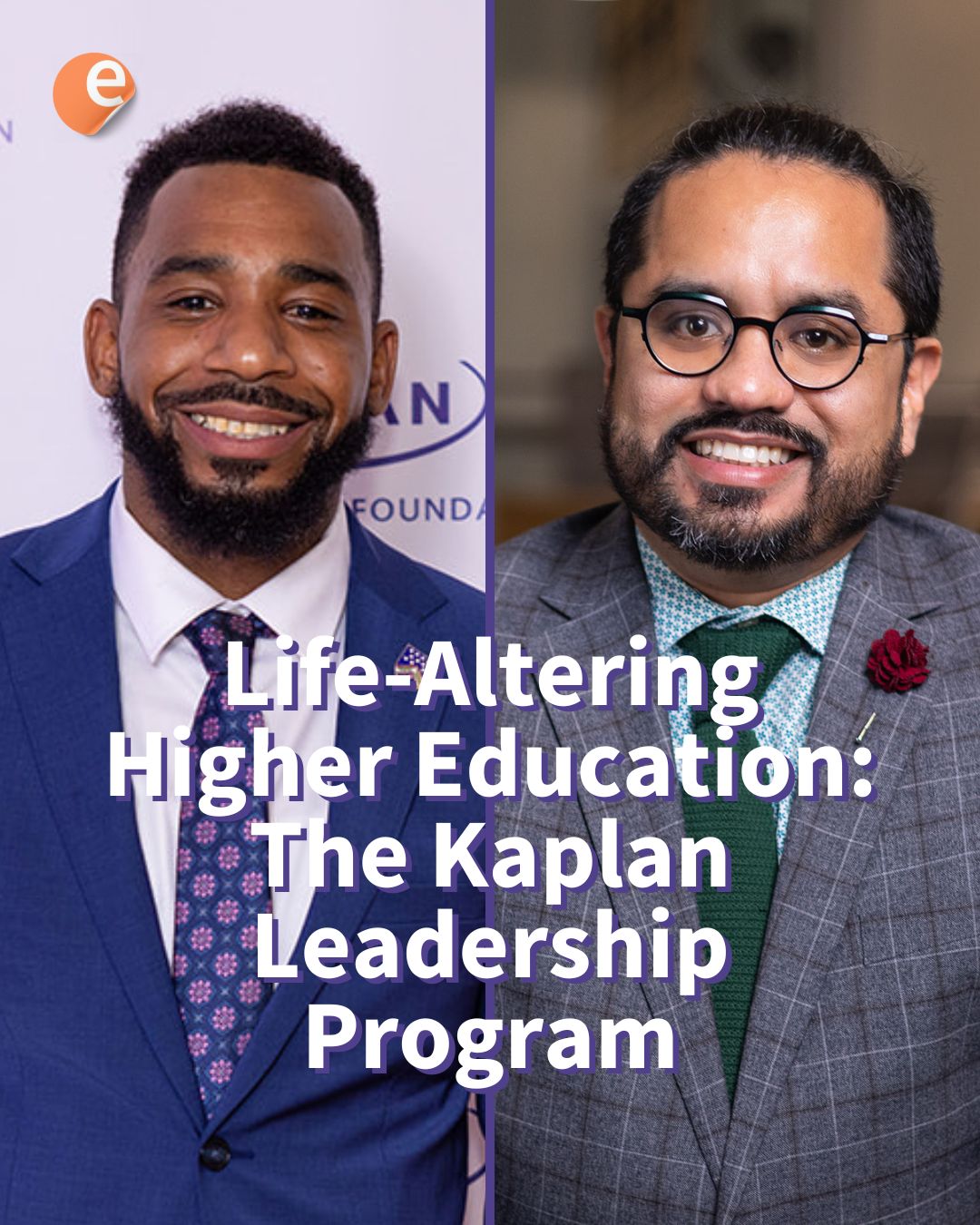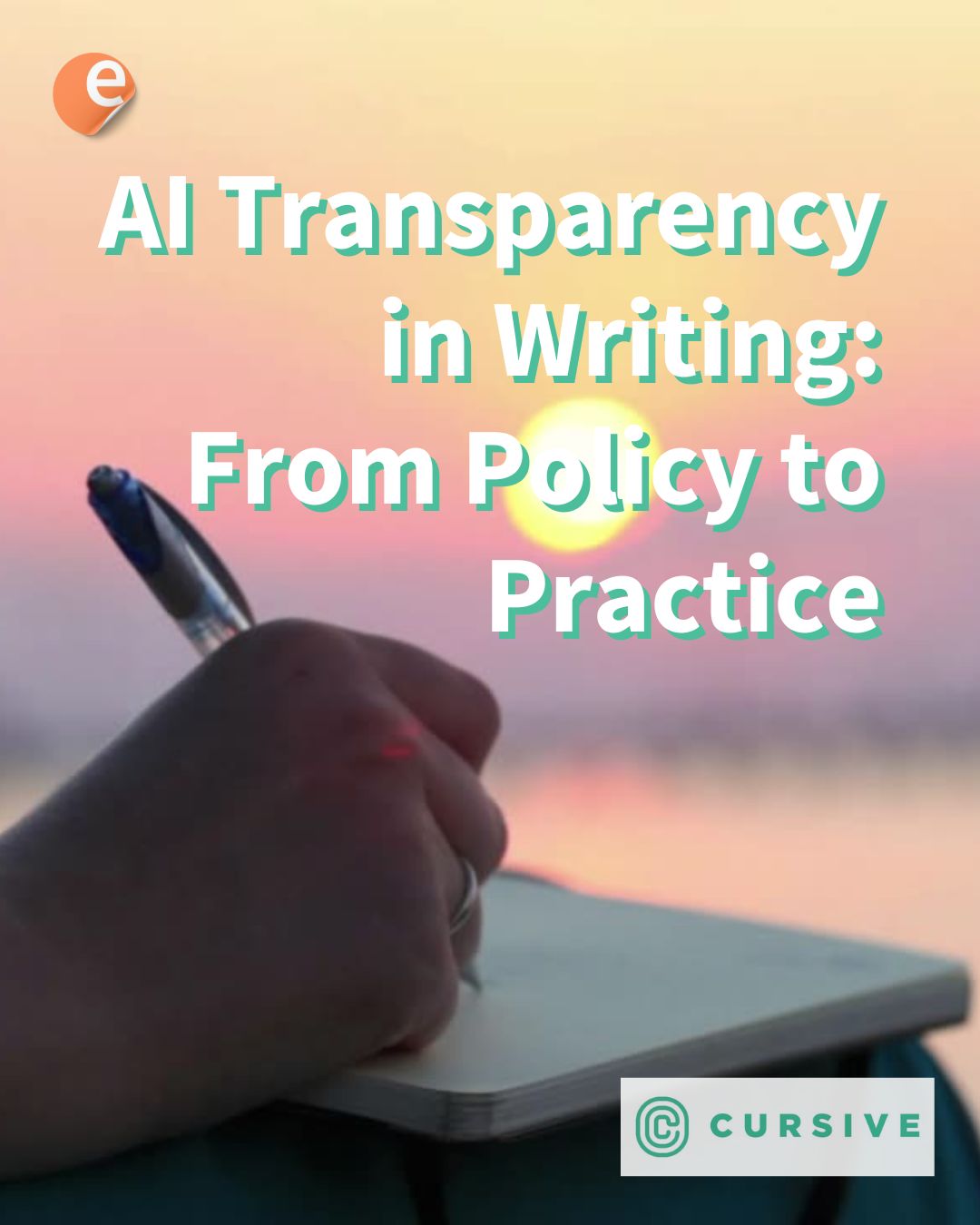The Kaplan Educational Foundation is a 501(c)(3) non-profit public charity, initially established by Kaplan, Inc. with the goal of helping underserved community college students in the New York and New Jersey Area. Since its beginning, the Foundation has supported over 170 scholars, primarily first-generation graduates, low-income students, re-entrants and veterans transferring to top four-year schools. Through the eponymous Kaplan Leadership Program, the scholars receive comprehensive and long-enduring assistance starting during their community college time, which includes financial aid, supplementary skills and guidance. In the 2024 program, 4 scholars are completing their Ivy League education with the help of the program.
According to the Foundation, 92 percent of its scholars have successfully transferred and earned a bachelor’s degree. By comparison, less than half of community college students achieve a transfer, and only 16% become graduates. This figure is even lower for low-income, Black or Hispanic populations, all of whom are the focus of the Program.
We had a surprisingly heartfelt conversation with alumni Antoine Hunter and Jon Chavez —who is also Director of Academic Advising of the Kaplan Leadership Program— about their experience, the importance of letting learners believe they’re worthy of opportunity, commitment and trusting the process.
Meet Jon and Antoine
I’m excited to be here with Jon Chavez and Antoine Hunter. We’re here to talk about the Kaplan Educational Foundation, and the pathways community college students have today. I hope this is a very fun and enlightening conversation for everyone. It’s very nice to meet you.
Jon and Antoine, how are you today? Can you tell us a bit about yourselves?
Jon Chavez: Hi, thanks for having us. I’m in New York City, really excited to be here today. I am Jon Chavez and I serve as the Director of Academic Advisement with the Kaplan Educational Foundation. I’m also an alumni of the program, many moons ago when I was a student at LaGuardia Community College. With support from the program, I transferred to Bard College to get my bachelor degree, and now I serve and support our students with transfer advisement.
Antoine Hunter: Thank you for having me, Cris. I’m also a Kaplan Educational Foundation alumni. I was a part of a cohort in 2019. The Kaplan Educational Foundation assisted me in transferring into Yale University to obtain my bachelor’s degree in history of science, medicine and public health. I received the Eli Whitney scholarship to Yale during my undergraduate degree, and I received a graduate scholarship to study at the Yale School of Nursing, where I am currently training to become a psychiatric mental health nurse practitioner.
Kaplan Educational Foundation and the Leadership Program
Can you tell us a little bit about the Foundation and the Leadership Program? How do they relate to one another?
Jon: The Kaplan Educational Foundation is a 501 C3, public charity. Our mission is to serve underserved community college students who are seeking to complete their associate degree. We help them to transfer successfully to some of the nation’s most selective colleges and universities, where they go on to complete a four-year bachelor’s degree. This is done through our Kaplan Leadership Program which is our flagship program.
I have a question for both of you, looking for answers from both sides of the spectrum. Let’s go back to the starting point of the Foundation. Jon, what is the Foundation looking for, when you are prospecting students who fit the requirements but also have the best odds to make the most of the program? And Antoine, how did you come across the program, how did you reach out, what made you consider it and decide it was the right choice for you?
Jon: We are seeking to work with community college students in the New York City-New Jersey area. The students must demonstrate financial need, but more importantly, display initiative, resilience and perseverance. We’re not necessarily looking for the perfect student, but we do want a person who is willing to work and receive assistance in their ambitions. We also want someone that has a desire to transform the lives of others and serve their communities.
We believe there is a lot of talent and opportunity that’s lost, because community college students don’t typically have sufficient support to make the transfer viable.
Antoine: I am a father of three, I married young. I was employed with the New York City Department of Education as a paraprofessional, where I worked with at-risk students. I would work with children of color, and I felt like a hypocrite promoting education without actually having one myself. That inspired me to enroll into Hostos Community College. While I was at Hostos, I joined the CUNY ASAP program which provided me with an academic advisor. He suggested that the Kaplan Educational Foundation would be a great fit for me. So I applied and I gained acceptance in a program that has changed my life.
I was afraid to apply to universities. I knew I needed to be in New York to support my family. But the people from the Foundation encouraged me to apply to four-year universities across the nation. They gave me funding to visit these universities across the nation. When my laptop broke down, the Kaplan Educational Foundation gave me a new laptop. Throughout the years, KEF has become a family, and even, as an alumni, they still provide continuous support in my graduate studies.
Jon: I think university seems like a tremendous sacrifice to be making. Through our program he was able to find what was going to be the best fit for him. But getting there was a tremendous journey.
The challenge and “what it takes”
Let’s talk about the “middle” of the process. There is no doubt the Program is a great help. But there is something that you have to give back. Since this is something that’s going to develop you as a person and professionally, there must be a challenge that you must be willing to accept. So I would like to know from both your standpoints, what does it take to keep going, to stay in the program, to earn the place? What should someone who’s interested in the program be aware of, in terms of the responsibility and the challenge?
Antoine: For me I would just say, trust the process. The Kaplan Educational Foundation prepares you to enter the real world.
For example, we used to have to go to the Foundation offices every week, which was challenging for me as a father of three. I had to work around my full-time schedule to attend weekly programs at the Kaplan Educational Foundation. But they provided so many resources, from email etiquette for example, to coaching, to university application and essay writing assistance. If people have these opportunities, they will succeed. But you have to commit, every week. That molded me into who I am today, and I feel like other people have the opportunity to do great things just like I am now.
Jon: One of the things that we share with our scholars is that, regardless of whatever pathway you decide to take, you need to know that you will have to make sacrifices. So the question becomes, which sacrifices are worth it for you?
After the affirmative action decision, many students are feeling increased pressures. Cost of education continues to rise and more jobs are requiring a degree. I think there is an assumption that when a student enters college, they will be able to navigate all these issues. In reality, the guidance is very limited, if not outright unavailable. There are a lot of challenges that community college students must face. You have to make a choice and decide that this is going to be worth it, even if you don’t see the result immediately.
Jon, how about you as a scholar? What was the thing that in Antoine’s words, “molded you”? What was the moment or the event that made you realize that it was worth it?
Jon: When I entered the program, I had dropped out of high school three times already. I dropped out of college once as well, before returning to community college after I had a newborn son. I felt like I had very little odds of success when I decided to apply to the program. But they were willing to look beyond all those things that were part of my history that I would have deemed, maybe not as a failure but as shortcomings. They saw an opportunity in me that I didn’t see in myself at the time.
So what “molded me” was the program making me realize that I did not have to give up on my dream and the things I want for myself. It was a big decision to make, at the time my son was two years old, a lot of sacrifices had to be made. But now I am able to say that I succeeded and that it paid off. Now I can provide for him in, and support others in their college application process. That’s invaluable.
How to help learners realize they’re worthy of support
I think you both raise a very interesting point which is, how do we convince more people that there are paths out there, and that they are worthy of those pathways? What do you say to those people that are still on the fence, or maybe not even considering it because they don’t think this is something for them? Maybe because there is a certain idea or stereotype of what a higher education student is?
Jon: I could say so many things to that question. I think one of the true results of this program, that Antoine was mentioning earlier. Many community college students go in with a plan about what they’re going to pursue. And those plans are typically grounded in the exposure we’ve had in our life, the experiences that we had and what is realistic. Organizationally, what we try to do is to encourage our scholars to look deeper into themselves. We try to take off the blinders and to show them that they can pursue who they want to become.
We have had alumni that go on to become amazing teachers, and nurses, but also scholars that end up working in economic policy for the U.S. government, and have published books. We even have a scholar that’s pursuing Hollywood. I think that is very hard to see when you’re just beginning your first semester of community college, but we really truly believe that with the right education, the sky’s the limit.
What about you Antoine? Could you elaborate on “Trust the process”?
Antoine: So I live by two mottos, which I try to promote to everyone. My first motto is, “Proper planning prevents poor performance.” My second motto is, “Don’t let your zip code determine your destination.” I say that because, as I mentioned, I lived in an urban community. I partook in gang violence as a child. I watched friends die in the street, and that motivated me to be a better person. Where I am now in life, I promote what education has shaped me into.
I was asked to be a part of a commercial, CUNY ASAP program called me to do a video and to promote the college to people. It got over a thousand reposts! I have dozens of people asking me, “How do I join?” “How can I get into the Kaplan Leadership Program?” “What can I do to get in?” I even have a friend who came to my graduation at Yale, and then we went and enrolled him into community college. If I can do it, you can do it too.
For anyone interested, who can they reach out to, or where can they find more information?
Jon: Please check out the website to learn more about the program, the requirements and the upcoming application cycle. We definitely encourage any community college students that are in their first year to apply, as soon as the next cycle opens.






